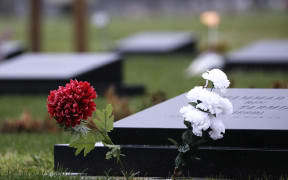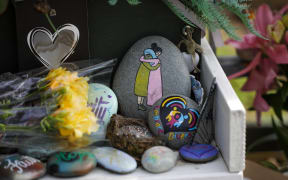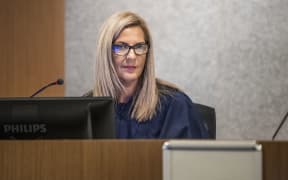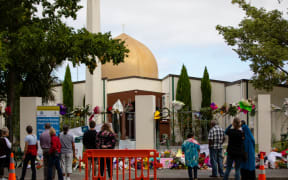The coronial scope hearing on the Christchurch terror attacks ends today.
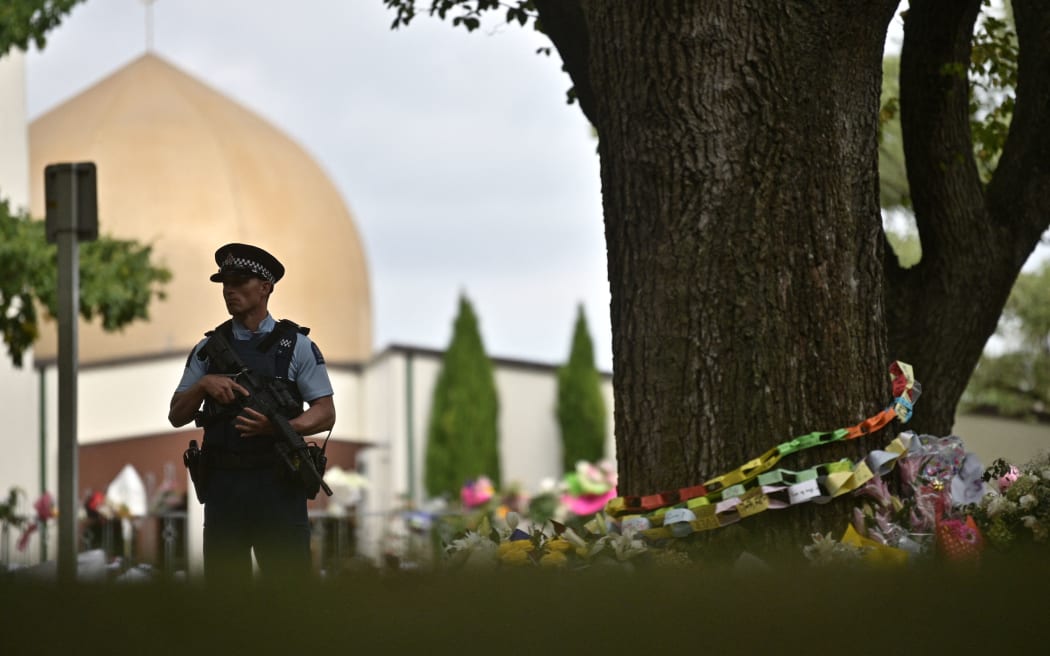
Policeman outside Al Noor Mosque in Christchurch, where 44 people died as a result of injuries in the 15 March 2019 shooting. Photo: AFP
The main focus yesterday was on the significant negative impact of digital platforms.
Radical digital movements are becoming increasingly more public and that is why Islamic Women's Council's national co-ordinator Aliya Danzeisen told the hearing the protests at Parliament were unsurprising.
"Here in New Zealand, we can just look to our own streets at the moment, where there are protests in front of our Parliament; threats to hang our politicians; to disturb our government; to destroy our democracy, and we are certain they began and are fuelled online," she said.
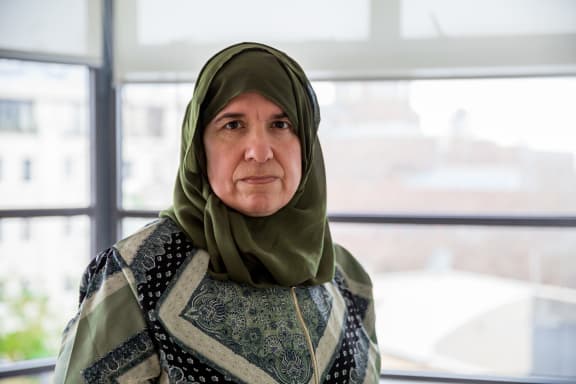
Aliya Danzeisen. Photo: RNZ / Luke McPake
"While many may be surprised by the current events, for the Muslim community, this has become second nature to us."
The council's leadership has received multiple online death, poisoning, and rape threats since the 15 March 2019 attacks.
Danzeisen said people were often radicalised entirely online, through platforms like 4chan and Telegram, nowhere more so than New Zealand.
"While it may not be easy to accurately quantify how many are involved in the extremist behaviour, we know it is significant, and the vast majority of it is from the alt-right and white supremacy movements in New Zealand.
"Research has shown this: New Zealanders create more posts, per capita, than any other nation on 4chan."
Danzeisen also called for more scrutiny of the terrorist's digital profile.
"Those two examples that we have provided [to the court] are not dissimilar to the threats made by the Christchurch terrorist himself," she said.
"Perhaps, had the digital platforms listened to us and others in 2015, and effectively moderated their products and services, the Christchurch terrorist would have been found out before acting on his threats."
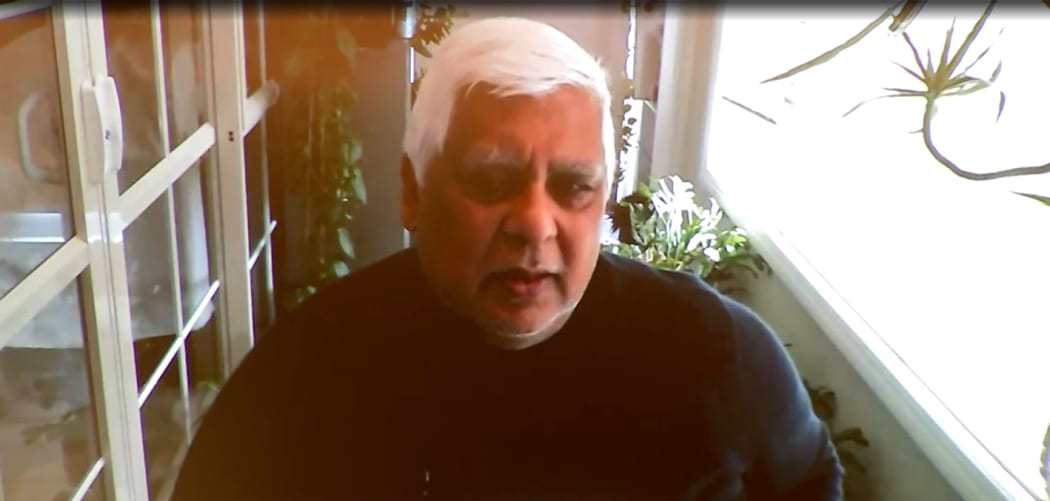
Abdur Razzaq speaking on behalf of the Federation of Islamic Associations at the coronial scope hearing on the Christchurch terror attacks. Photo: Supplied
Representing the Federation of Islamic Associations, Abdur Razzaq told the hearing if closer attention was paid to online data, police may have realised the two referees the terrorist used to get a gun licence were not his own family members.
"Not only did the police make a grave error by allowing two non-relatives to be the referees, contravening all gun licensing regulations, it turns out that the father had a previous conviction.
"And the son also had been warned by the police on arms-related matters."
Abdur Razzaq believed the attack could have been prevented if police had done a complete check.
"If the terrorist did not get the firearms licence, then he may have abandoned his planning for a terrorist attack in New Zealand."
He said he hoped the coroner's inquiry scope would "include this fundamental issue which could have prevented the massacre of 51 of our brothers, sisters and children".
But the police's lawyer, Mark Zarifeh, said gun licensing was already covered extensively by eight chapters of the Royal Commission's report and did not need repeating.
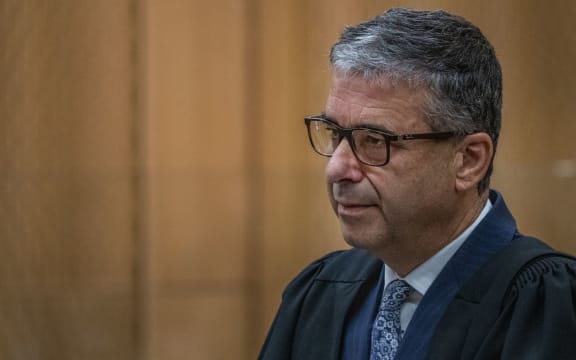
Mark Zarifeh Photo: Stuff Pool
"I accept the firearms licensing process is an important issue, but it's an issue that, I submit, has been fairly and squarely dealt with by the Royal Commission."
Coroner Brigitte Windley agreed, though she understood the families wanted the opportunity to look at evidence in an open court.
"My sense is that's the predominant issue here ... the lack of information [the families] have had to date has meant that they haven't been able to have confidence in the findings of the Royal Commission."
The terrorist's lawyer and the Human Rights Commission are expected to make submissions this morning.
